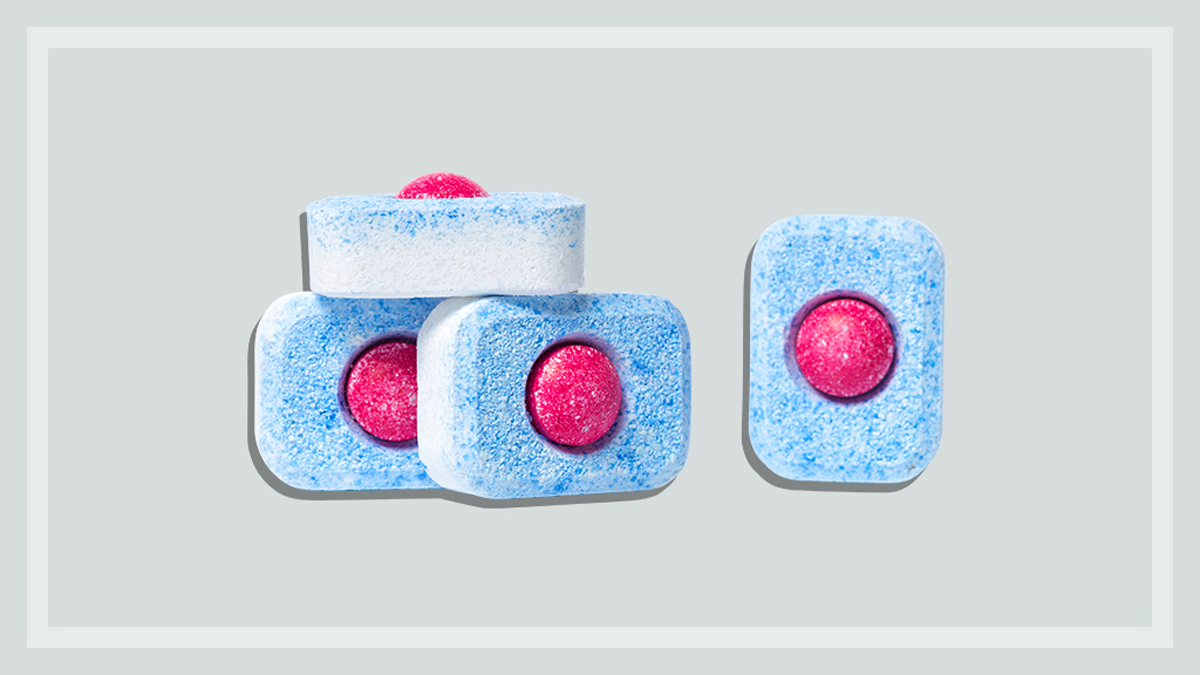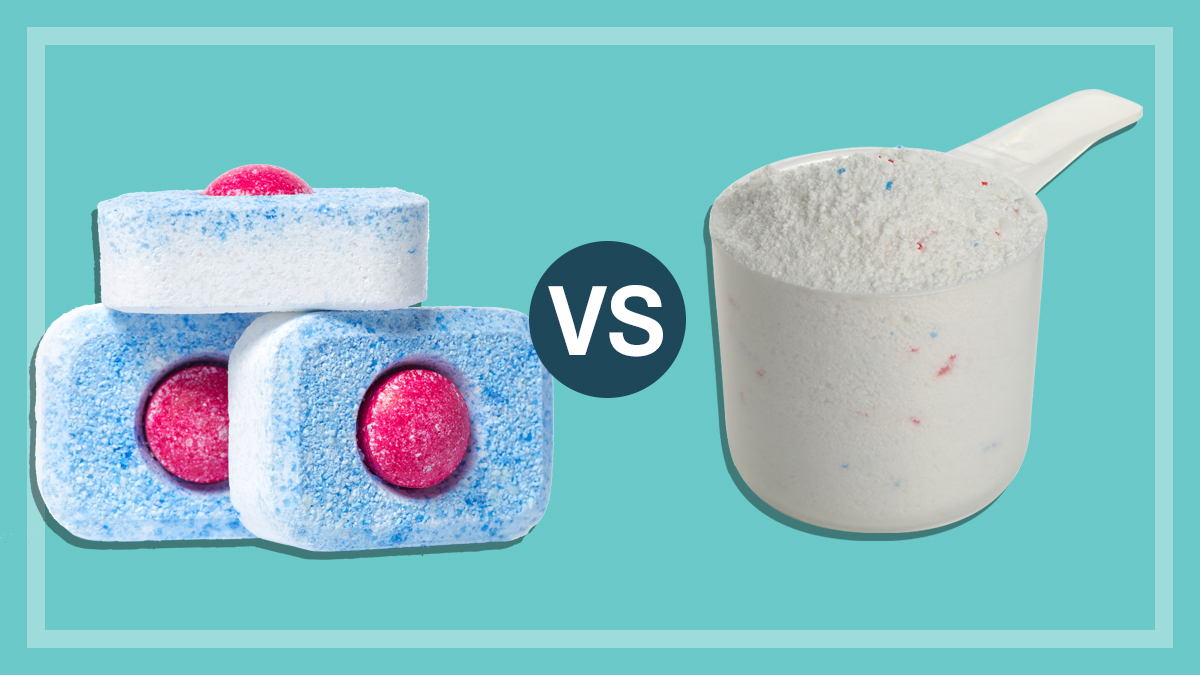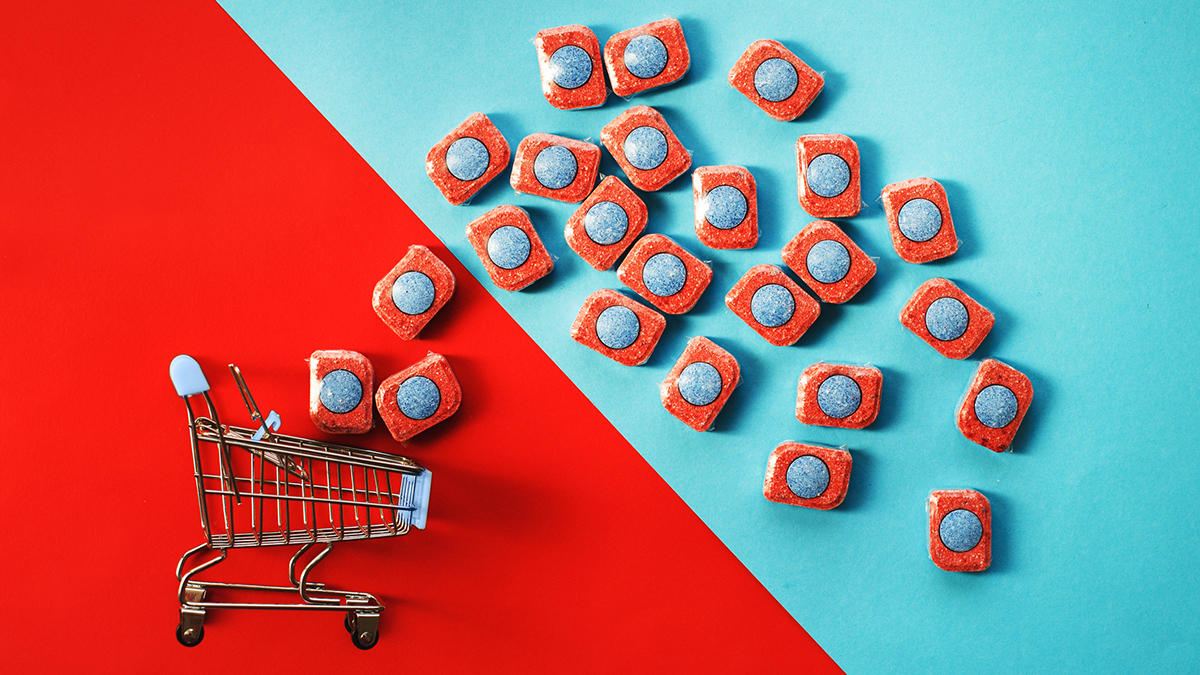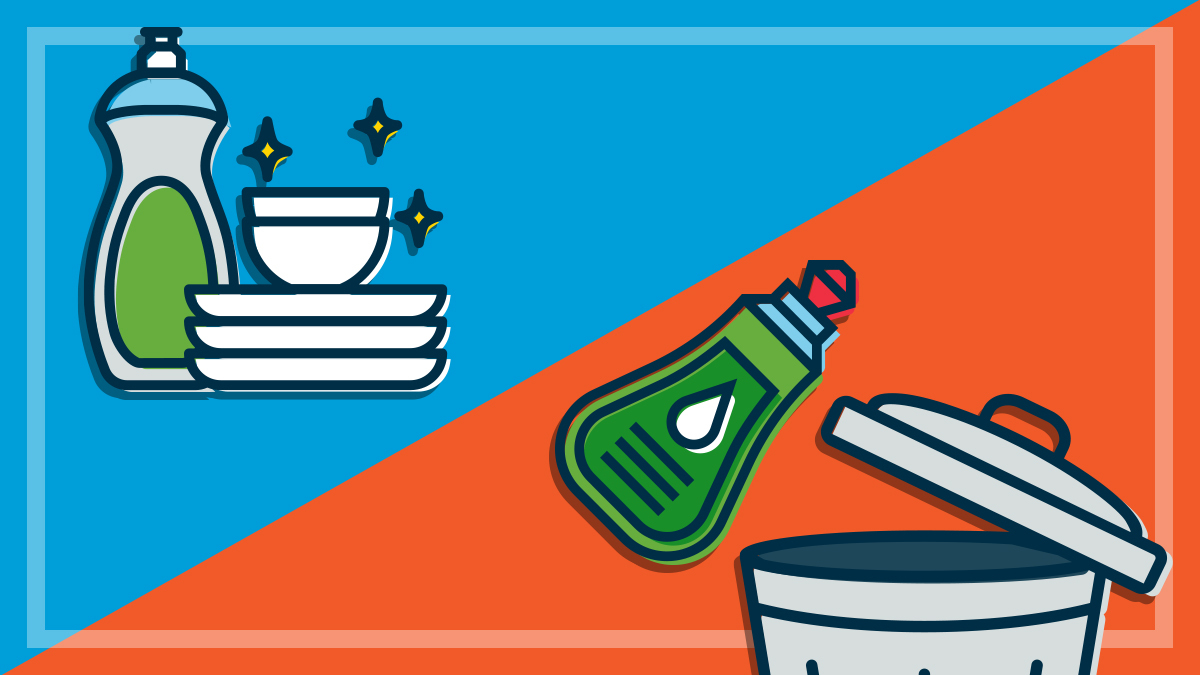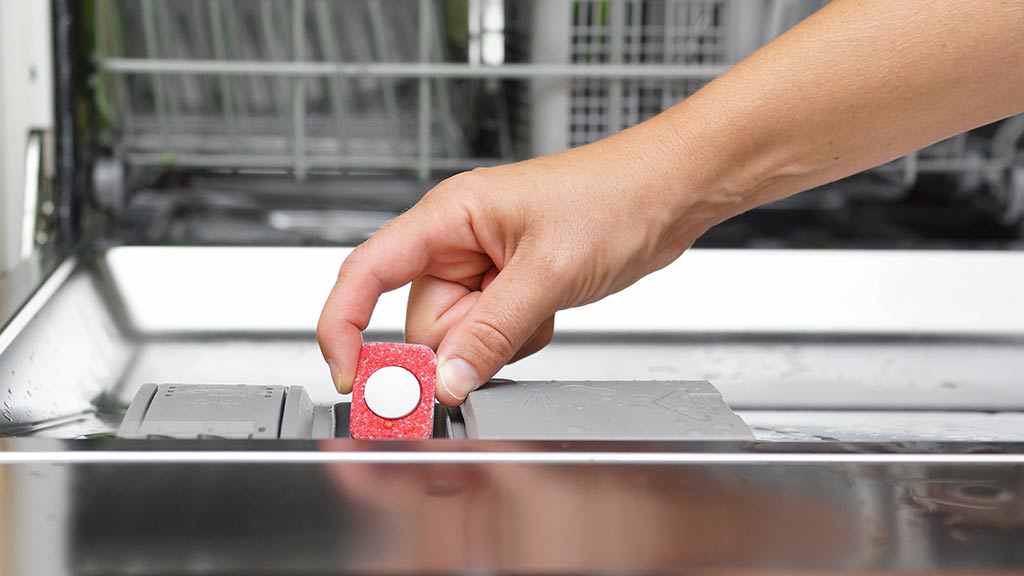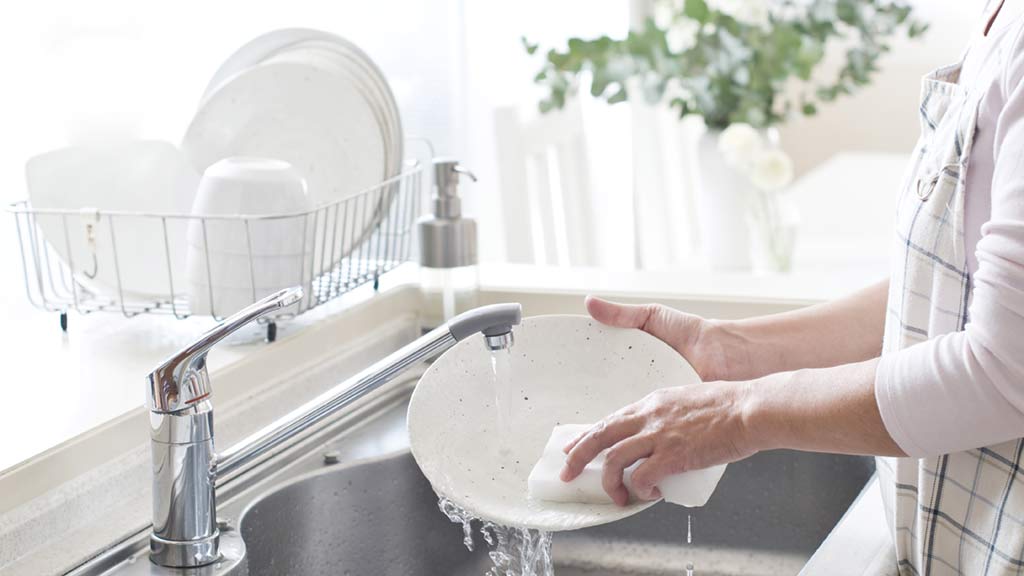Get our independent lab tests, expert reviews and honest advice.
What to know when buying dishwasher detergent
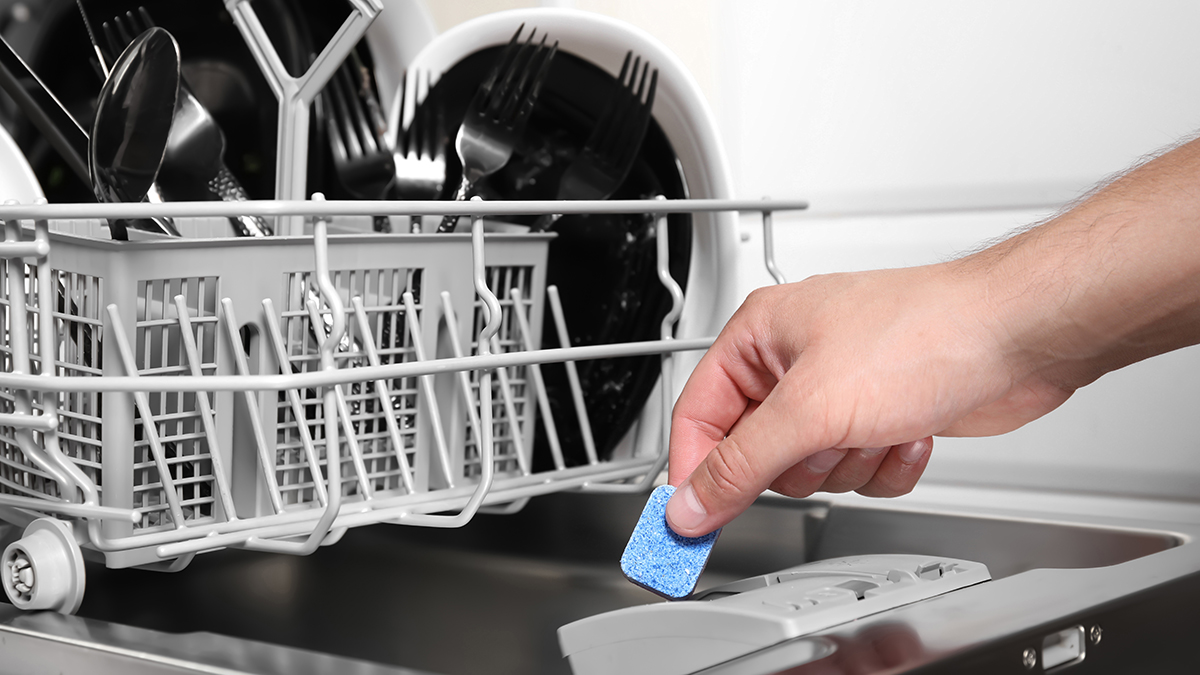
More than half of us have a dishwasher in our homes, and while the magic box that does the washing up is doing most of the hard work, what you put in it matters, too.
On this page:
- Are tablets or powders better?
- Does CHOICE test dishwasher detergent sheets?
- What about cleaners, rinse aids and fresheners?
- Avoiding phosphates
- Safety around children
Your dishwasher detergent makes up a significant portion of your dishwasher’s running costs, but dishwashers are still more efficient than hand washing, so using one will still save you money even if you use a really expensive detergent.
Are tablets or powders better?
There are two main types of dishwasher detergents: tablets and powders. There are also gels, which look more like a liquid detergent, but they’re only a very small part of the dishwasher detergent market.
Several manufacturers are now producing dishwasher pods. A variant on the dishwasher tablet, these pods contain liquid ingredients instead of solid, and are often vividly coloured.
There are also a few dishwasher detergent sheets which are newer on the market – we haven’t seen these performing particularly well compared to others so far.
Tablets
Tablets are convenient (especially with dissolvable wrappers), generally perform better than powders and often include rinse aid, but they’re generally more expensive per wash than their powder counterparts. Even so, they’re the most popular detergent type, making up over two-thirds of dishwasher detergent sales. Bear in mind some dishwashers (like dish drawer models) can’t use them.
Powders
Powders generally cost less than tablets, but tend not to perform as well. Most packs state a recommended dosage regardless of the dishwasher, while some have a recommended dosage based on the dishwasher you use, so the amount you’re using per wash can vary. Erring towards larger dosages will tend to give you slightly better results, but you’ll use more detergent, pushing up your cost per wash.
CHOICE tip: Buying larger packs of detergent (especially when they’re on sale) will usually reduce your cost per wash, even if you only run your dishwasher occasionally. But keep in mind that most detergents have a recommended shelf life of two years.
Does CHOICE test dishwasher detergent sheets?
In our recent test, we included a dishwasher detergent sheet to see how it compared to the gels, powders and tablets. The sheet contains a pre-measured amount of dishwashing detergent, which you simply place directly into the compartment along with your dirty dishes.
While dishwasher detergent sheets presents themselves as a more sustainable product, unfortunately the product we tested didn’t scrub up in terms of performance, providing little to no benefit in the dishwasher cleaning cycle.
Our experts say the product tested doesn’t have any enzymes in its ingredients which is a contributing factor to its poor performance. To see how it stacks up against the other products we’ve tested, check out our dishwasher detergent results.
What about cleaners, rinse aids and fresheners?
Cleaners
While you may think your dishwasher is clean – after all, it spends all its time cleaning! – grease and limescale tend to build up in hard-to-see parts like the filters, spray arms, pipes, water pump and drains. Using a dishwasher cleaner every now and then may help to keep all these important parts clean. However, you could also do it without buying yet another product – check out our article on how to clean your dishwasher.
Rinse aid
Rinse aid works in the rinse cycle to thoroughly clear away detergent and food residues. It aids in drying performance and helps minimise water spotting by reducing surface tension in water droplets so they’ll sheet off your plates and glasses more easily.
It also helps to prevent the glaze on crockery being stripped away and glassware looking cloudy and scratched, which happens over time due to the high pH level in detergents – basically, rinse aid is supposed to keep your glassware and crockery shiny.
CHOICE tip: Keep the rinse aid dispenser in your dishwasher topped up for best performance. This is especially important if you use a powder detergent – most tablet detergents have rinse aid built in.
Fresheners
Dirty dishes waiting to be cleaned in the dishwasher can contribute to a smell building up between washes, to the point where you start getting a nasty whiff when you open and close the door. A freshener helps to combat that, but many people swear by this natural approach: try popping a squeezed-out half a lemon in the cutlery basket before running the dishwasher.
Avoiding phosphates
Phosphates have traditionally been used in dishwasher detergents but contribute to algal blooms and are bad news for the environment. The good news is that phosphate-free dishwashing detergents can perform as well or better than their phosphate-containing counterparts (sometimes they’re cheaper, too).
Thankfully there are very few dishwasher detergents on the market that still contain these nasty chemicals. So go phosphate-free and you’ll get good washing performance while reducing your impact on the environment.
You may also notice some hand dishwashing liquids claim to be phosphate free. While this sounds good on the surface, you can safely ignore this claim, or the lack of one, as no dishwashing liquids sold in Australia contain phosphates anyway. So it’s kind of the equivalent of a detergent claiming it’s ‘sugar free’ – it may well be true, but it’s not exactly a key benefit.
Safety around children
Dishwashing detergent is alkaline and can be extremely dangerous if swallowed, causing a corrosive reaction in the mouth and throat. Tablets, gels and brightly coloured pods can look and smell like lollies and can grab the attention of kids, so it’s extremely important to keep them well out of reach of curious little fingers. Don’t rely on supposedly child-resistant caps or packaging.

